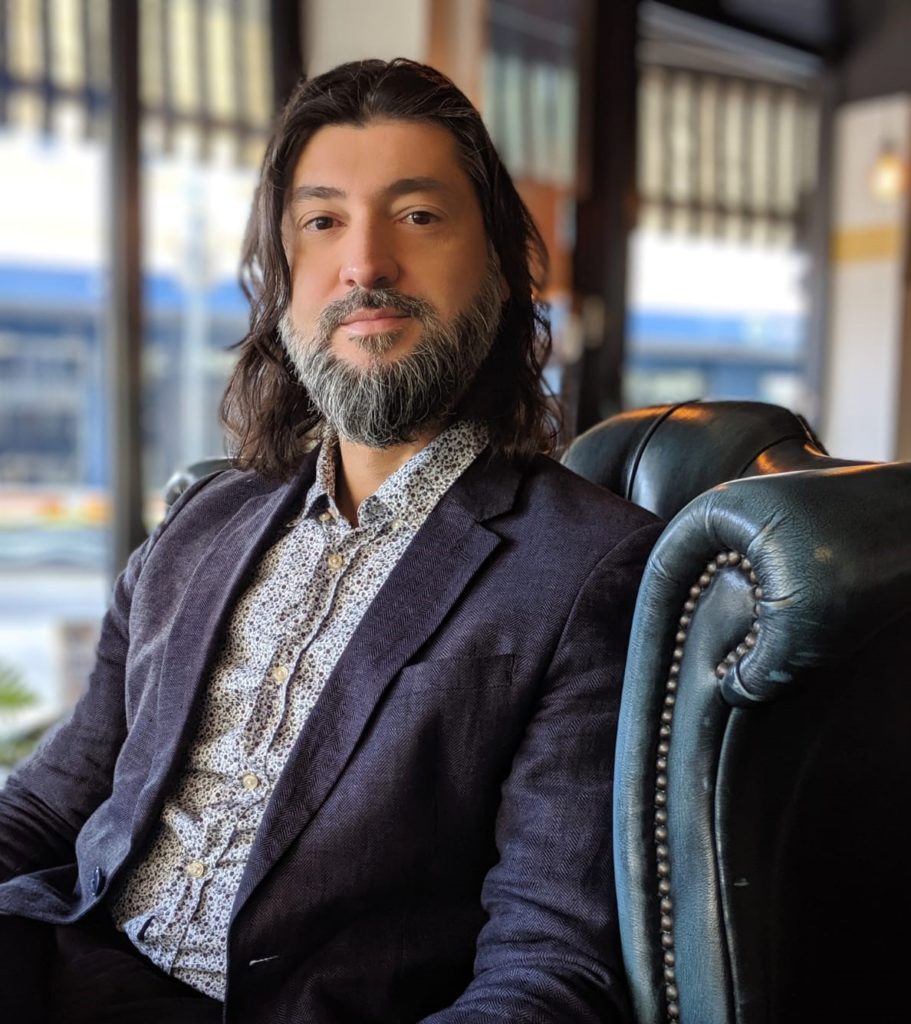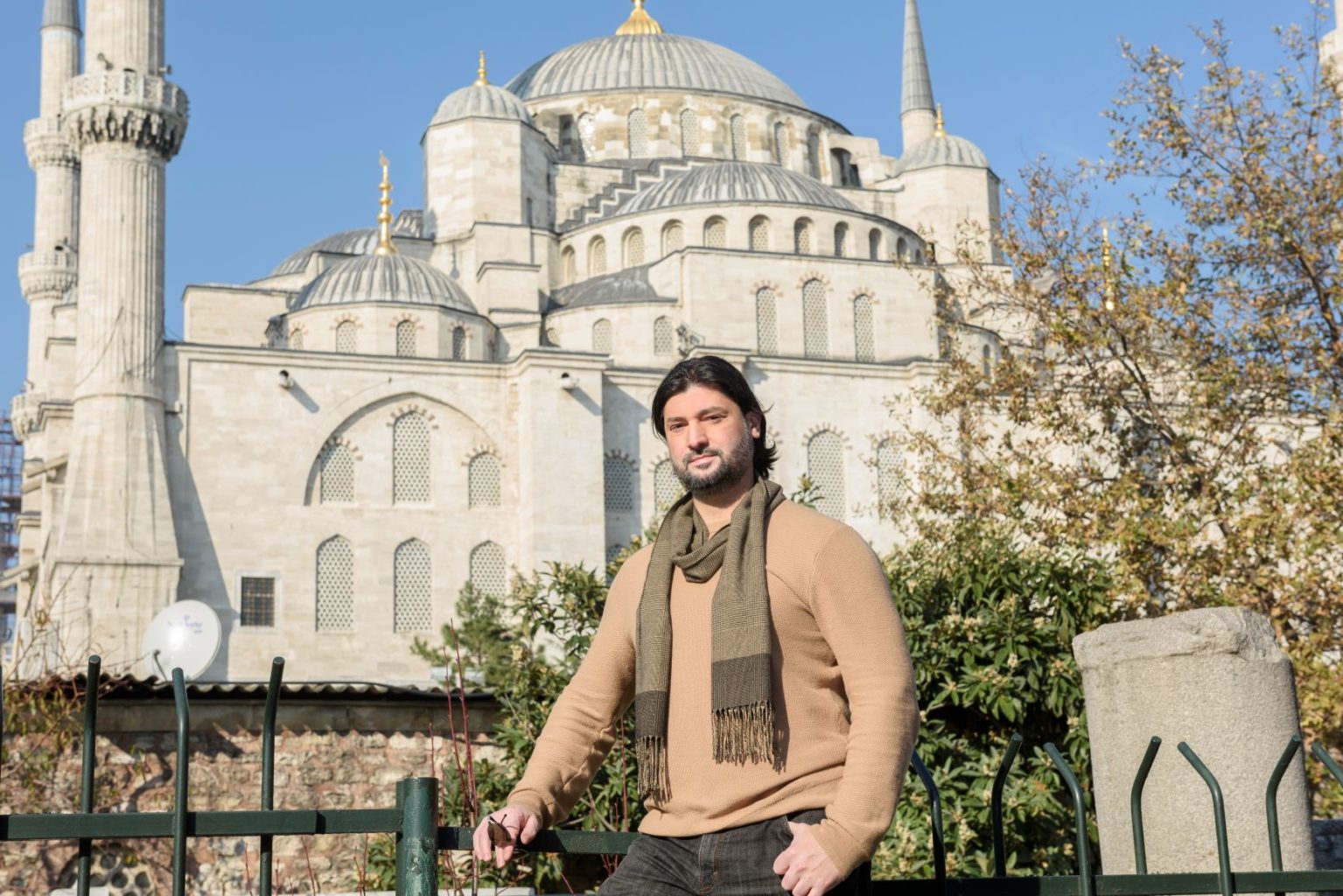Griffith’s Islamic studies expert on the origins of faith, time travel and being a Guns N’ Roses fan

Meet Associate Professor Halim Rane, an internationally recognised scholar in Islamic studies who leads the Islam in Society field of study at Griffith University. Based in the University’s School of Humanities, Languages and Social Science, Associate Professor Halim Rane is a member of the Griffith Centre for Social and Cultural Research. He teaches several courses in the Islam-West Relations major and his main areas of research include contemporary Islamic thought, Islam and Muslims in the West, and counter-narratives in response to religious and ideological extremism. He is the current president of the Australian Association of Islamic and Muslim Studies (AAIMS).
What led you to Islamic studies?
I have been interested in sociology and anthropology since high school but my interest in Islamic studies stems from my family background. My grandfather was an Imam. In fact, he was Queensland’s first home-grown Imam and led prayers for over 40 years at Holland Park Mosque, the oldest mosque on the east coast of Australia. He had quite a traditional understanding of Islam and I was interested in a more critical-analytical, evidenced-based understanding of its origins, history and evolution. I did my undergraduate studies at the International Islamic University Malaysia in Sociology and Anthropology and Islamic Revealed Knowledge and Heritage. When I returned to Australia in 1999, I did a Master’s in Communications and Media Studies and, after a period working in the area of social and media research, I took a job with the Department of Immigration and Multicultural Affairs. This was just after 11 September 2001, so I guess my unique skill set was coming into demand.
Why did you choose to work at Griffith University?
I actually began my PhD at UQ but after my first semester, Griffith University offered me a place in the newly established Griffith Islamic Research Unit. I found Griffith to be very supportive throughout my PhD studies and when I completed my dissertation in 2008 and was offered a lecturing position, I resigned from the Department of Immigration and Multicultural Affairs and have been at Griffith ever since. I like the values of Griffith University, especially its commitment to social justice. I also value being able to work with the wonderful professional and academic staff at Griffith.

What do you consider your greatest achievement?
I have a few achievements that I’m particularly proud of. I never imagined that I would successfully complete a PhD dissertation but to also receive the Griffith University medal for my PhD and have it published as a book was a great achievement for me. Another achievement I’m proud of is winning the Australian University Teacher of the Year award [in 2015] as I consider teaching to be an especially important part of my work.
If you could time travel, where would you go?
I would have to go to early 7th century Arabia. So much of the conflict we’ve witnessed over the past few decades relates to what people think about Islam. Given that Islam is expected to become the most followed religion in the world by the latter half of this century, we need to know what its original message was. I’m currently involved in a research project analysing historic documents referred to as the Covenants of the Prophet Muhammad. These were pledges of protection he issued to Christian, Jewish and other communities of his time. They have profound implications for Islam’s teachings regarding religious pluralism, the recognition of other faith communities and the preservation of their places of worship but were hardly recorded in Muslim sources that were transmitted over time. It would be a big help to this research if I could go back in time and cite an original of one of these Covenants.
Which person do you most admire (living or dead)?
I admire New Zealand Prime Minister Jacinda Ardern. Although other world leaders don’t set the bar very high, her responsible leadership in the face of crises and commitment to human and environmental wellbeing has been outstanding. I wish more leaders around the world would take a leaf out of her book.
What would your superpower be, if you could have one?
It would be the ability to teleport. As much of what I research and teach concerns what has happened in the past, it would be fantastic to be able to traverse time and space and do some non-participant observations of key historic eras and events.
What is your most treasured possession?
Anyone who knows me only moderately well, knows I’m a big Guns N’ Roses fan. So my most treasured possession would probably be my Limited Edition Gibson Slash AFD Les Paul. It’s a replica of the guitar Slash used to record Appetite for Destruction, which, objectively speaking, is the best album ever recorded.
What book are you reading at the moment?
Upheaval: How Nations Cope with Crisis and Change by Jared Diamond. It seemed worthwhile given the state of the world.
What did 2020 teach you?
It’s important to appreciate what we have today because it might not be there tomorrow.


